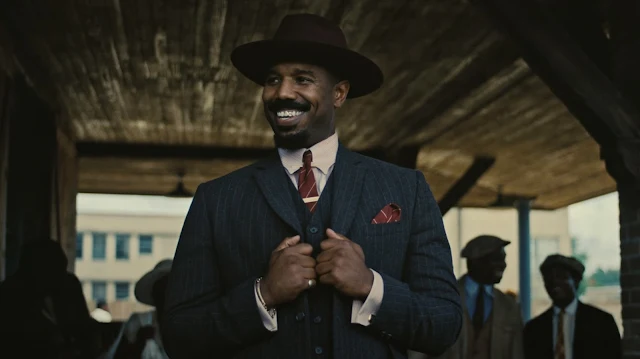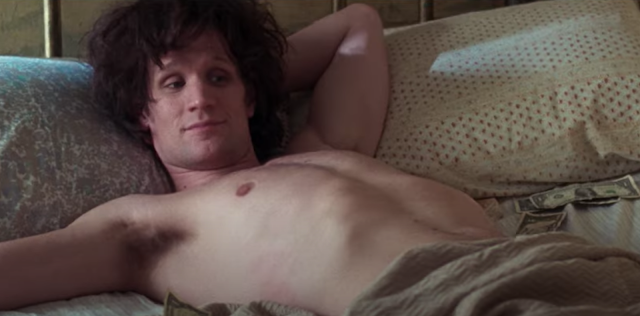 |
| Laurence Olivier in Richard III |
Cast: Laurence Olivier, Ralph Richardson, John Gielgud, Cedric Hardwicke, Claire Bloom, Alec Clunes, Mary Kerridge, Andrew Cruikshank, Clive Morton, Norman Wooland, Helen Haye, George Woodbridge, Pamela Brown, Stanley Baker. Screenplay: Laurence Olivier, based on a play by William Shakespeare. Cinematography: Otto Heller. Production design: Roger K. Furse. Film editing: Helga Cranston. Music: William Walton.
Laurence Olivier clearly relished Shakespeare's cunning Machiavel Richard III, and with good reason: It's a role that put him front and center at all times. Of the roles he filmed, even Hamlet has to share the stage with others as colorful as Polonius, Claudius, and Ophelia, and Othello stands on equal footing with Iago in getting attention. But Richard is buzzed around by characters he can swat off like flies, which lets Olivier cast his two rivals for greatest English actor of the 20th century, John Gielgud and Ralph Richardson, alongside him. For good measure, he even adds that hammy knight Cedric Hardwicke, who chews the scenery in his big moment. I happen to think that Gielgud gives the best performance in the film, but Clarence leaves the play early. Richardson for some reason underplays the role of Buckingham, and Olivier said that he wished he had been able to cast Orson Welles instead. Outfitted with a prosthetic nose and a page-boy wig of stygian blackness, Olivier lurks and limps around the stage, scowling and plotting. In adapting the play, he cuts and rearranges: The scene in which Richard woos the Lady Anne (Claire Bloom) is cut into two pieces, but it helps increase the credibility of a widow succumbing to the man who killed her husband. The ranting of Queen Margaret is one of the play's more entertaining moments, but it interrupts the flow, so Olivier cuts the role entirely. He brings Mistress Shore onto the stage and casts her generously with Pamela Brown, even though she has only one interpolated line. He borrows bits from 18th century adaptations of the play by David Garrick and Colley Cibber. The result is a reasonably swift and tight account of the play, less confusing to audiences that have trouble with the tangled genealogy of the Yorks and Lancasters. Unfortunately, Roger Furse's design is a little drab, and in some scenes Olivier's blocking and camera direction are cluttered. Still, on the whole, Richard III deserves its current reputation as Olivier's best adaptation of Shakespeare to the screen.






.jpg)


